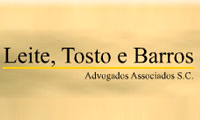Pão de Açúcar: what about the minority shareholders?
Juliana Martines*
The official letter published by the CVM (Brazilian SEC) on June 14, 2005 is very clear: the deal signed between Abílio Diniz and Casino Guichard Perrachon on May 3, 2005 requires the tag along.
The tag along, brought back into effect by the Brazilian Corporations Law in 2001 ensures the minority shareholders holding shares with the right to vote, the extension of the conditions offered to the controlling shareholders in the case the majority stock of the company is sold. Thus, section 254-A of the said Corporations Law determines that in case the control of the public company is transferred, the buyer of the respective shares should make the same offer to the minority shareholders in such a way that guarantees them a price of, at least, 80% of the value paid for the shares of the previous controlling shareholders.
Right after the agreement between Diniz and Casino was published, the CVM, acting as a public authority inspecting the capital markets, raised the possibility of the tag along mechanism reaching the interesting conclusion that the agreement in fact was not about the continuity of sharing the control of CBD, but about the transfer of the control in question.
According to the CVM, the signed agreement would differ from the situation publicized by the parties involved once that since 1999, CBD was effectively controlled by Diniz’s group of companies, not referring to, thus, the continuation of a shared control. In reality, the control of CBD – which became shared upon the execution of the agreement – will be acquired by Casino by exercising an option to purchase the control for the price of R$1.00. And this should occur in 8 years, after the price for the acquisition has been paid in full.
Thus, the obvious imbalance between cause and consequence – meaning between the future transfer of the control of CBD for the trivial value above – led the CVM to conclude that the additional value for granting the option to purchase the control had already been included in the value paid to Diniz when the agreement was announced.
Based on that assumption the CVM, with the intention to protect the rights of the minority shareholders of CBD, and backed by section 29 of the CVM’s Normative Ruling N. 361/02 understood that the public offer of stock shares for transfer of control would be mandatory, i.e., the tag along.
It is certain that, besides the small number of shareholders of CBD who benefited from the CVM’s conclusion – the tag along only applies to common stock shares, which, in the case of CBD, refer to just .05% of the whole stock – the market reacted positively to the decision. This is because the financial market operations feared that due to the tremendous value of the deal, the CVM would not take any actions, and this would open a dangerous precedent, jeopardizing future exchanges of control, which could disregard the rights of the minority shareholders, including shaking up this important corporate governance practice.
Naturally, there was a significant increase in the demand over the shares benefited by the decision, resulting in the appreciation of the CBD’s common stock shares at approximately 18% after they had been totally forgotten for almost 3 years.
Besides, the approval of the market and the fact that, theoretically, the Casino Group would not have to come up with lots of capital to execute the tag along, because as it has been said, the benefited shares are of insignificant quantity. Probably, this will be the first chapter of this story since CBD will certainly appeal this decision.
____________
* Lawyer, LL.M. in corporate law from the University of California, Los Angeles (UCLA). Ms. Martines works in the corporate law department at Leite, Tosto e Barros Advogados Associados

______________